Is the Publishing Game Really “Still a Lot Like It Was”?
An article by Bob Minzesheimer in a January issue of USA Today brought out some statistics about some of the novels on USA Today‘s Best-Selling Books list, which tracks combined sales of eBook and print editions. The latest list, based on sales data from Dec. 26 to Jan. 1, shows a huge increase of digital book sales after e-readers were unwrapped as gifts: for 42 of the top 50 titles, the eBook editions were the most popular format. The previous high, in July, was 25 of the top 50. In the article Michael Norris, an analyst with Simba Information, a market research firm, is quoted as estimating that one in five US adults are reading eBooks on a variety of devices, from dedicated e-readers to tablets (like the Kindle Fire) that can be used to download movies, music, video games and more.
Here are some points made in the article that I found interesting:
- Forrester Research estimates that Amazon has sold 5 million Kindle Fires, priced at $199 each, since the device was released Nov. 14.
- Archrival Barnes & Noble has sold an estimated 2 million Nook Tablets ($249), released Nov. 17.
- Both devices are designed, in part, to compete with Apple’s iPad (the latest versions are priced from $500 to $830), which sold about 40 million units last year.
- The sales of eBooks doubled from 10% of the overall market to 20% in 2011, and print books still account for about 80% of the market.
“The Game is a Lot Like It Was”–Or Is It?
Michael Cader, founder of Publishers Lunch, an influential digital newsletter, says it’s premature to call eBooks a “game-changer” for publishing: “Lots of things are changing, but the game is still a lot like it was.” I know that’s what a lot of people in the publishing industry say, but I wonder if that’s really the true painting of the landscape unveiling before us. The big question for publishers and booksellers is, according to Bob Minzesheimer, just how fast are these changes coming?
He cites Russ Grandinetti, a vice president at online retailer Amazon (which dominates the markets for both e-readers and e-books), who says its print and digital sales are both up, but “digital is growing significantly faster.” Norris, the market research analyst, doubts if eBooks will “hit a true tipping point like music did. Music content has always required an electronic interface, be it a gramophone or an iPod,” which is not the case with books. But technology has now made inroads into every area of our lives, and even though he makes a point, I personally don’t feel it’s relevant at all. What is relevant to consumers–be it for music, books, food, or most all other purchasable commodities–is what Mark Coker (founder of the eBook distribution site Smashwords) says, and what I noted in previous posts: people want things faster, smaller, cheaper, and easily accessible.
Faster, Smaller, Cheaper, More Accessible
When I have a book I really want to read, I can either order one online and wait up to a week to get it, or I can drive to the nearest bookstore (if there is one nearby and if they happen to currently carry the book I want), or I can ask my library or bookstore to get that book in for me (the former might not do that for me, or may have a long wait list, or the title might not be easily obtained). But, if I order the eBook from Amazon to read on my Kindle, and especially if I use my quickie 1-Click option, I can be reading that book within a couple of minutes and probably for a lot less cost than if I bought the print edition. I can’t think how much faster, smaller, cheaper, and more easily accessible I can get. This is fast-food service at its best. And once people get used to a certain segment of their life being made easier like this (electric toothbrushes, fast-loading websites, cell phones), it’s really hard to go back. I mean, really, are you ever going to buy an old mercury-filled thermometer to take your child’s temperature ever again? Wait more than a minute for a stubborn web page to load? We used to wait without complaint, but . . . not anymore.
Publishers Are Scrambling
In order to compete with the surge of eBook retailers, publishers are beginning to delve into multiple formats. On Jan. 23, Reagan Arthur Books, a division of Little, Brown, released three versions of George Pelecanos’s latest novel, What It Was—as a 99-cent eBook, a $9.99 paperback, and a $35 limited-edition slip-cased hardcover. Editorial director Reagan Arthur calls it an experiment, using the eBook to attract readers new to Pelecanos. “We’re interested in seeing the effects of low-priced eBooks,” she says. “We don’t want to kill off print sales. We want to grow the total audience.”
Do you believe the savvy publishing houses that want to survive are really going to take the attitude Cader touts–that the game is still pretty much “a lot like it was”? I don’t. I think we are going to see some very creative and innovative moves to stay in the game, and it’s going to involve eBooks in a big way. How could it not? Will the big houses start giving higher eBook royalty percentages to their top authors? Will they phase out hard-cover editions? Will they put out fewer and fewer print books and invest more in hardware like eBook readers? Time will tell.

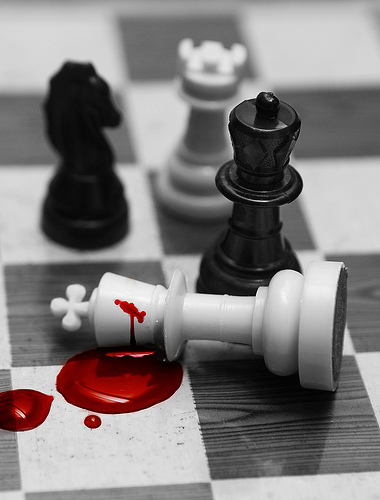
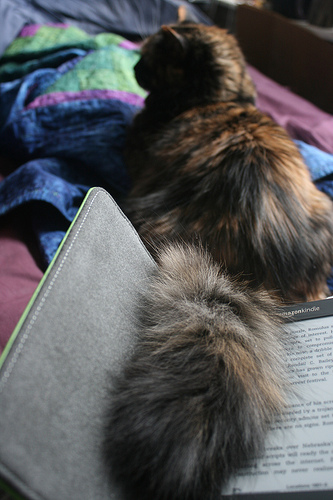
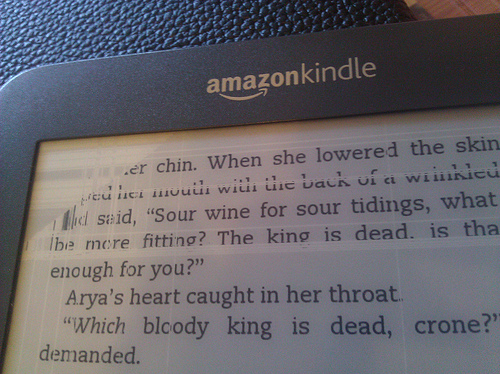
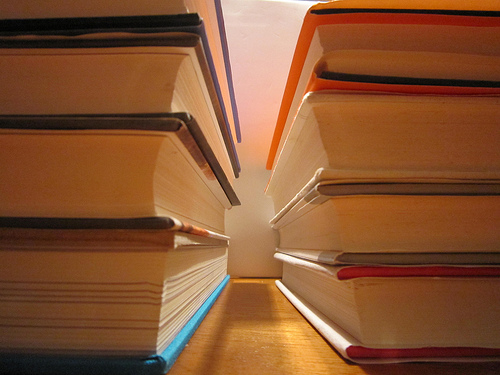

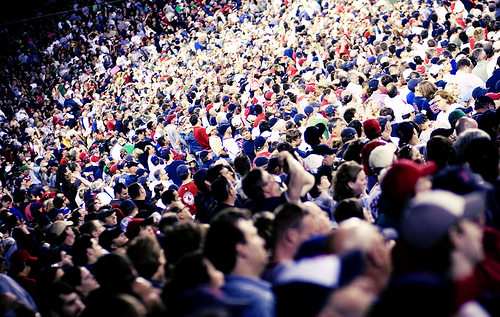
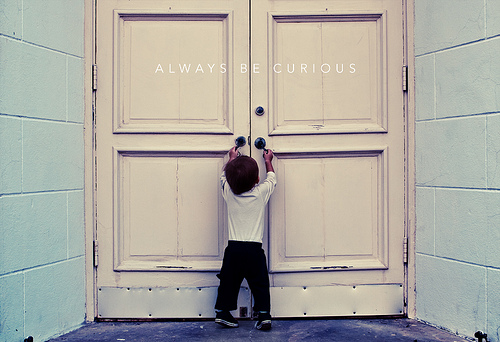




I was at a writers conference recently and spoke with many agents about these issues. They believed that ebooks affected the sales of paperbacks the most– and that soon readers might have the choice between just ebooks and hardbacks.
None of them felt like the game was a lot like it was.
Thought-provoking, thoughtfully written article.
A lot like it was? Is any business professional really that monumentally ignorant? The internet will change publishing more than the printing press did.
I’m also curious about the phrase “savvy publishing house” because I’d love to hear of one which acts as an encouragement of art rather than simply a gatekeeper.
I agree with questioning the “savvy publishing house.” I think the only thing in the past that has made them “savvy” is their ability to do exactly as you say – gatekeep. The books published have been purely a business decision and had nothing to do with the encouragement of art.
I’ve always believed that the beauty and value of true art would eventually rise to the top, but that’s been hard to do with a favored few making the decisions as to what gets published and what doesn’t. Perhaps e-books will help to level that playing field, albeit make it a much more crowded court.
How can you compare a Kindle or Nook to an iPad? Can you go on-line with the first two? If not, they are nothing alike. I do not know of any Ipad users who read books on them.
Mind you, personally, I hate the iPad. It is too “touchy” (those of you who have tried to use them know what I’m talking about) and everything is too small (though admittedly, it is not as bad as the iPhone or smart phone, but still).
You are comparing lettuce with steak; there just is no comparison so why compare the price?
Sherrie, iPads have ibooks and a terrific reader, which lets you “turn” pages and has wonderful graphics and links capabilities. My husband reads all his books on his ipad. Apple has catalogues for buying books and is only one of many, many devices out there for ereading in addition to the Kindle and Nook. I have a Kindle but I much prefer the reading experience on the iPad and no doubt there are plenty of people who use their iPad to read just as faithfully as do Kindle users. But the main point is that more and more people are choosing to read digitally rather than purchase and read print books, and that number is growing daily.
Sherrie, I have had an iPhone for a year and the new iPad for a couple of months, and I love both devices. I read all 800 pages of Winds of War and half of War and Remembrance on my iPhone and found it incredibly convenient and pleasant. I’m now reading an illustrated version of Huckleberry Finn alternately on my iPhone and iPad, with iCloud keeping track of where I am in the book and even porting over my yellow highlighting. It looks so much like a printed book it’s amazing, and the illustrations are gorgeous and can be enlarged to my heart’s content. I’m tempted to buy all my books as eBooks if available (and I mostly buy through iBooks, sometimes Kindle editions), but I still buy printed books as well. It’s a whole new world, and I love it!
I love my Kindle Fire, especially because I can go online and that when I write and publish my books with Kindle I can put in hyperlinks to take readers immediately to related or copyrighted source material, not to mention to order my next book or get the one they are reading as a gift even while they are reading it.
I’m perfectly content with reading ebooks on my iPad and would never trade it for a specialized (and limited) reading device. With the Kindle app and Stanza, I have everything I need (I don’t use the iBooks app much). Just about every iPad user I know reads ebooks on it.
Since 99% of the books I care to read are not available as an ebook, nor are they likely to become available (I don’t read many trendy books from the NY Times Bestsellers List), I have serious reservations about publishing my work for an ebook. It’s a matter of economics…sure it’s easier for the consumer…but what about the author. How can you make any money if your book sells for pennies? Personally, I still prefer hardcovers, but will bend to purchase a paperback if it’s all that’s available. However, the type of writing I do (historical memoir/family history memoir).
e-readers are going to keep doubling their size of the market each year until it far outweighs paperback/hardback sales. And although they may sell for less, the potential market is massive; far bigger than any one publisher can generate (unless you’re on of half a dozen authors on the planet that have a global following). Think about it; 5 million kindle readers sold last year; half of one percent sales at £1 a time = £25k x 70% to the author = £17,500 and that if you price your book at the lowest setting. Multiply that by three books per year and maybe increase the price and you’re into the good life!
Calder’s hedging his bets, but publishing surely isn’t like it was! You capture many of the reasons, but I’d add the generational divide. Look at most people under 30 and they’ve grown up with technology delivering them information instaneously; they don’t fear technology, and know that newer, faster, smaller, lighter, more capable products come out all the time. I live overseas, so I use a Kindle for all the reasons you mentioned: no wait, book in my hand in less than a minute, easy to order, cheaper than paperbacks or hardcovers, etc. I think if anything is going away sooner rather than later, it will be hardcovers. And 20-25 years from now? Not sure paperbacks will exist then.
I’ve been doing a great deal of reading on this subject over the last year. It seems to me that publishers are publically saying that things aren’t changing, but I’m betting privately, they are quaking in their boots. This industry is going to transform. If you think there is one niche that won’t be touched, think again. I think hardbacks are always going to be around, but in the future it’ll be a specialty item, not the main event. (Think about what happened to the candle when the light bulb came along). The paperback system is going to go away. By that I mean, publishers producing huge runs of paperbacks and funneling them to bookstores to sit on shelves. Because the technology for print-on-demand has hugely changed, making the ability to get a print copy of an ebook almost as easy as downloading the book. Booksellers will be able to get online and order from suppliers only the numbers they think they can sell. From the Kindle, Kindle Fire, Nook, Sony Reader, Kobo Reader, iPad, iPhone – those are going to be the preferred way to read. I have a Kindle, a Kindle Fire, an iPad, and an iPhone. I read on all of them. Do I still have hardbacks and paperbacks in my to-be-read pile. Yes. But I almost always turn to my Kindle Fire or iPad first. Easier to hold, easier to transport, and can hold thousands of books. And authors are starting a revolution by switching to publishing their own work with partners like Amazon and their Kindle Direct Publishing that earn them 70%. Authors are exiting in droves from established publishers and putting their own work on the market on Amazon, Barnes and Noble, Smashwords and in the Apple store. By using independent editors, proofreaders and graphics designers – and there are hundreds out there in business now – they can put out a quality book that is comparable to one an established publisher has released. Why then, would you let the publisher keep the royalties? I switched to self-publishing a year ago – tired of my publisher pocketing the money for my hard work – and I haven’t been sorry. I’ve eliminated a blockade between me and my readers and been able to support myself doing what I love best. No, this industry is in the midst of a technological revolution. Nothing is going to stay the same.